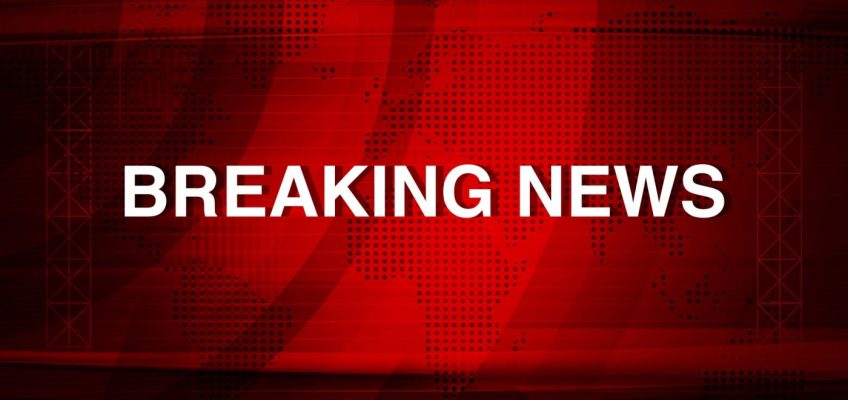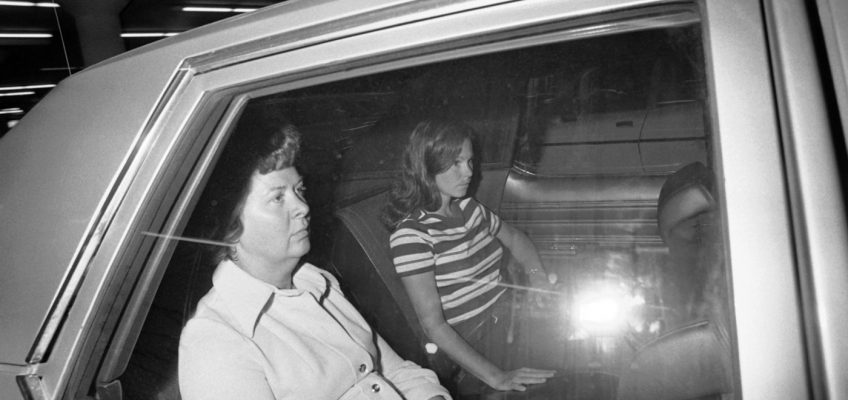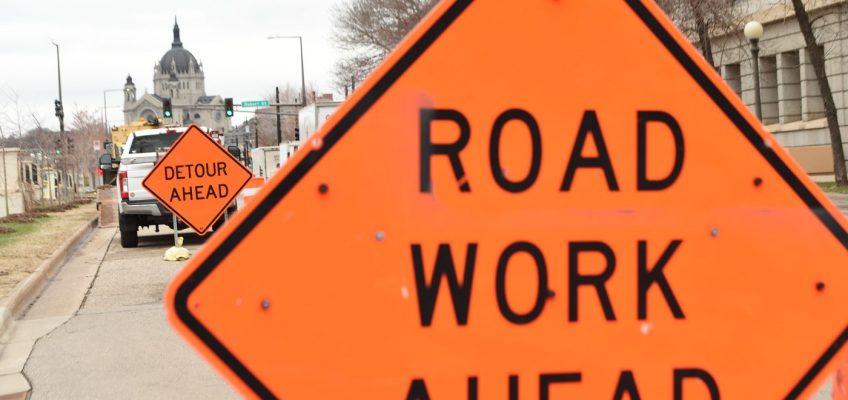On the same day a St. Paul firefighter’s name was added to the national Fallen Fire Fighter Memorial, two fellow Minnesota firefighters were on a 150-mile, nine-day trek to raise awareness and funds for firefighter well-being.
St. Paul firefighters Larry Goodman, left, and Kyle Bode, second right, with singer and songwriter Ozzy Osbourne and his wife, Sharon Osbourne, right, at the Starkey Hearing Foundation gala in St. Paul in 2010. (Courtesy of Kyle Bode)
St. Paul Fire Capt. Kyle Bode was initially supposed to attend the ceremony in Colorado as his friend Larry Goodman was memorialized. Goodman was a longtime St. Paul firefighter who retired as a captain in October 2022 and died from brain cancer in January 2024 at age 57.
But when the Minnesota Firefighter Initiative’s executive director asked Bode if he’d take part in the walk for the nonprofit, he couldn’t say no.
“I thought it would be a good way to honor Larry and I think it’s important to try to take care of our firefighters that we have right now,” Bode said.
Bode and Excelsior firefighter Doug Foote ended their journey from Duluth at the Minnesota Fallen Firefighter Memorial on the Capitol grounds in St. Paul on Sunday.
The two men, trailed by a small crowd, arrived at the memorial with huge grins on their faces. Amid cheers and applause, they ended their walk by hugging one another.
Doug Foote (left) and Kyle Bode cross the finish line for the “Miles for MnFire” walk in St. Paul on Sept. 21, 2025. Foote and Bode walked 150 miles over the course of eight days in hopes of spreading awareness about firefighters’ health. (Claudia Staut / Pioneer Press)
Stopped at fire stations along the way
In 2021, Foote held the first Miles for MnFIRE, walking 200 miles from Marietta, Minn., to St. Paul. He raised awareness along the way and about $20,000 for MnFIRE.
This year, the second time for the walk, Bode joined Foote. He’s the St. Paul Fire Department’s health and wellness coordinator, and is also a peer supporter and trainer for MnFIRE.
Foote and Bode started at the Duluth Fire Department headquarters on Sept. 13 and walked south, passing through Moose Lake, Hinckley, North Branch, Forest Lake and more. They carried a firefighter flag and another flag for MnFire.
Kyle Bode’s nephew waves a flag in preparation for Bode and Doug Foote to show up in St. Paul on Sept. 21, 2025. (Claudia Staut / Pioneer Press)
“This has been a walk about hope and spreading hope,” Foote said on Sunday. “My desire is that people will feel uplifted from this walk. Firefighters don’t care about what your politics are, your creed, your religion, they just want to help you out. And hopefully people will be inspired by that and donate.”
They stopped at fire stations and they said their favorite part of the walk was meeting all the firefighters in small towns along the way. And some firefighters and families joined them along their route. They averaged about 20 miles a day, mostly walking 16-17 minute miles.
Both firefighters said the toughest part was Wednesday when temperatures soared and they left the trail to walk along Highway 61 in Hinckley in the heat, but that the people who came out to support them during those 24 miles helped “keep their spirits up,” Bode said.
It was Bode’s birthday on Thursday — he turned 43 — “and I was trying to keep it a secret,” he said, but word got out. During a gathering that day with firefighters and community members in Harris, Minn., they had a cake for him and sang “Happy Birthday.”
Along with getting together as friends, the two men also discussed the possibility of doing the walk again together in a few years, Bode said.
Bonded during the walk
The two firefighters had never met before they set out on a 156-mile walk. Nine days later, they had a unique and special bond.
“I think as a firefighter there are certain things you see that not everybody sees, and the intimacy that is created from those shared experiences and the real trauma that you go through … unless you’re a fellow firefighter” it’s hard to explain, Foote said.
The experiences they’ve both had and shared with each other on the road “bond us in a way that is very, very unique,” he said. “He’s an inspiration.”
Bode expressed similar feelings, saying the two men are going to get together again outside of the fundraiser.
“We walked 156 miles so we got to know each other quite a lot,” Bode said. “And I think we both care about the same things — about firefighter health and wellness and we’re both family men — so I think we just got along. We’ve both been firefighters for about the same length of time, so we just had a lot in common.”
Caring for firefighters
A signed flag blows in the wind in St. Paul on Sept. 21, 2025. (Claudia Staut / Pioneer Press)
MnFIRE says they educate firefighters about their higher risks for cardiac issues, emotional trauma and cancer. They provide information about preventative measures and resources for Minnesota firefighters.
The nonprofit advocated to increase state funding for firefighter health and the legislature passed the Hometown Heroes Assistance Program in 2021, which provides no-cost counseling and peer support; funds for medical expenses for cancer, post-traumatic stress disorder or a heart attack; and training around the state.
“MnFIRE is there to take care of the firefighters, so the firefighters can take care of the community and make it stronger and healthier for everyone,” Bode said.
Two Minnesota firefighters memorialized in Colorado
Two Minnesota firefighters were recognized at a Saturday ceremony at the International Association of Fire Fighters’ memorial in Colorado Springs, Colo. Etched in the memorial are names of firefighters who died in the line of duty.
Firefighter/Paramedic Adam Finseth (Courtesy of the City of Burnsville)
In addition to Goodman, Burnsville Firefighter/Paramedic Adam Finseth‘s name was also added to the memorial. He was fatally shot in an ambush that also killed two Burnsville police officers in February 2024.
This year’s ceremony recognized firefighters who died in 2024 or whose names were submitted last year.
To donate
Donations for Miles for MnFIRE are being accepted at charity.pledgeit.org/milesformnfire2025.
Letters: If Hamas cared about civilians at all it would release the hostages
Meet Haley Taylor Schlitz, Minnesota’s youngest assistant attorney general
Mahtomedi football game canceled Friday night due to nearby law enforcement activity
A look at some of the numbers behind firearm deaths in Minnesota
Drivers asked to use extra caution for motorcycle Flood Run weekend




